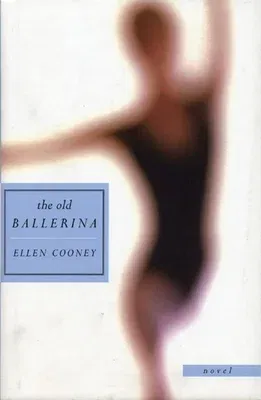In her third novel, Ellen Cooney tells a story about the creative
process, and about how art can and must happen anywhere and everywhere,
including a small mill town, outside the academy and outside the
confines of the art institutions of the city. In a world of corporate
homogeneity and the mass-marketization of culture, the story of Mrs.
Kamsky is emblematic of the independent voice and the creative spirit,
the little artist that could.
Grieving the defection of her protge and recovering from a hip injury,
Mrs. Kamsky unexpectedly renews her passion for life and for dance when
she teaches a class of teenage boys, including one who's recruited for
ballet lessons as punishment for breaking a classmate's leg in anger.
Ellen Cooney tells a story about the artistic drive to create,
alternately narrated by the central character's closest friends, her
loving and demanding students, her discontented protge, and her
inquisitive neighbors.
With prose that performs pirouettes and plis, The Old Ballerina tells
a story about teaching and learning, the individual and the community,
and above all, the healing power of the arts.
Light and lovely, Cooney's third novel (after Small Town Girl and All
the Way Home is about the way one superb ballet teacher, indomitable,
aging Irene Kamsky, touches the lives of her students and alters her
community. From a dance studio in her ranch-style home, located in a
suburb north of a nondescript town, she and her art shape the stories of
many characters, each narrating his or her own chapter in this slender
novel. Among the unpretentious ballerina's admirers (all refer to her,
respectfully, as Mrs. Kamsky_ are her devoted assistant, Margaret
Dunlap, who gets the job under false pretenses, but learns to love her
employer, doing everything from caring for Mrs. Kamsky's arthritic hip
to monitoring her record collection; tortured Lisette, Mrs. Kamsky's
legendary student, once a serious ballerina until foot injuries forced
her to become a teacher herself, and who drinks to drown her sorrows;
and Mrs. Kamsky's current class of boy ballerinas who describe, in
first-personal plural, their feelings before and after their first
public performance. While its plot is sli

